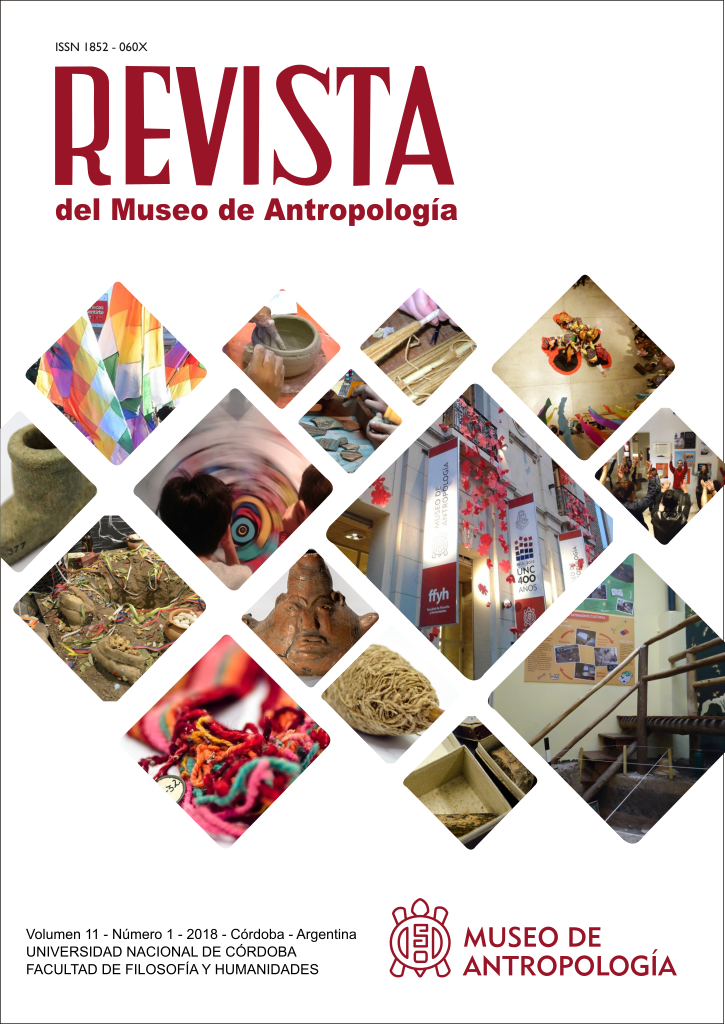Conmemoration and justice demands about the death of a senegalese leader in Argentina
DOI:
https://doi.org/10.31048/1852.4826.v11.n1.18677Keywords:
conmemoration, institutional violence, afrodescendants, african migrantsAbstract
In this article we propose to explore the public senses about the death of the senegalese activist Massar Ba (understood to mean a racist crime) from the colective integrated by Africans and Afrodescendants in Argentina, in particular the meaning that the event acquires in the conmemorative movilization context. Based on the etnographic fieldwork, we analize the construction process of subaltern memories and its relation with the “new” ways of blackness visibilization in Argentina. Specifically, through Massar Ba case, we observe how the remembering of racist and institutional violence acts in the afroargentine present to dispute whiteness hegemonic and equality narratives and therefore to demand historically denied rights. In this process we consider that Afrodescendant leaders have a privileged position to determine the parameters aimed at recalling the racialized otherness.Downloads
References
Caggiano, S. (2015). Imaginarios racializados y clasificación social: retos para el análisis cultural (y pistas para evitar una deriva decolonial esencialista). Cuadernos Inter.c.a.mbio sobre Centroamérica y el Caribe, 12(2), 157-188
Carvalho, A y da Silva Catela, L. (2002). 31 de marzo de 1964 en Brasil: memorias deshilachadas. En E. Jelin (comp.), Las conmemoraciones: Las disputas de las fechas “in-felices” (pp.195-244). Madrid: Siglo XXI Editores.
Espiro, L. (2017) Senegaleses entre la Argentina y el sur de Brasil: etnografía de la movilidad regional y la alternancia laboral entre venta ambulante e industria. En M. Maffia y B. Zubrzycki (Coords.) Africanos y afrodescendientes en Argentina: prácticas, representaciones, narrativas y memorias (pp. 41-60). Buenos Aires: Biblos.
Espiro, L., Voscoboinik, S. y Zubrzycki, B. (2016). Enfrentando el racismo institucional. Análisis de dos casos de migrantes senegaleses en Argentina (2012-2016). REMHU - Rev. Interdiscip. Mobil. Hum., XXIV (48), 63-78.
Frigerio, A. (2006). “Negros” y “Blancos” en Buenos Aires: Repensando nuestras categorías raciales”. En L. Maronese, Buenos Aires Negra: Identidad y Cultura (pp. 77-98). Buenos Aires: CPPHC.
Frigerio, A. (2008). De la “desaparición” de los negros a la “reaparición” de los afrodescendientes: Comprendiendo la política de las identidades negras, las clasificaciones raciales y de su estudio en la Argentina. En G. Lechini (Comp.), Los estudios afroamericanos y africanos en América Latina: Herencia, presencia y visiones del otro. Buenos Aires: CLACSO.
Gaztañaga, J., Piñeiro Carreras, J. y Ferrero, L. (2016) Afectos y efectos de Estado: Procesos políticos en torno a la creación de infraestructura, planificación urbana y turistificación. Estudios sociales del Estado, 2 (3), 125-153.
Geler, L. (2016). Categorías raciales en Buenos Aires. Negritud, blanquitud, afrodescendencia y mestizaje en la blanca ciudad capital. Runa 37(1), 71-87.
Grimson, A. (2013). Introducción. En A. Grimson y K. Bidaseca (Coords.), Hegemonía cultural y políticas de la diferencia (pp. 9-20). Buenos Aires: CLACSO.
Jelin, E. (2002a). Los trabajos de la memoria. Madrid: Siglo XXI Editores.
Jelin, E. (Comp.). (2002b). Las conmemoraciones: Las disputas de las fechas “in-felices”. Madrid: Siglo XXI Editores.
Jelin, E. (2005). Exclusión, memorias y luchas políticas. En D. Mato (Comp.), Cultura, política y sociedad. Perspectivas latinoamericanas (pp. 219-239). Buenos Aires: CLACSO.
Lao Montes, A. (2009). Cartografías del campo politico afrodescendiente en América Latina. Universitas Humanística, 68, 207-245
Monkevicius, P. (2017). Memorias y acción política: Conmemorando el Día del Afroargentino. En V Congreso de la Asociación Latinoamericana de Antropología y XVI Congreso de Antropología de Colombia, Bogotá, 6 al 9 de junio.
Pita, M. V. (2010). Formas de morir y formas de vivir. El activismo contra la violencia policial. Buenos Aires: Ediciones del Puerto.
Raggio, S. (2017). La memoria en las calles: de la lucha contra la dictadura al reclamo por la desaparición forzada de Santiago Maldonado. Megafón, la batalla de las ideas, 16/4.
YerushalmiI, Y. (1998). Reflexiones sobre el olvido. En Y. Yerushalmi, Loraux, N., Mommsen, H., Milner, J. y Vattimo, G., Usos del olvido (pp. 13-26). Buenos Aires: Nueva Visión.
Zubrzycki B. (2011). Las dahiras mourides en Buenos Aires. Anclajes locales de la migración senegalesa. En C. Pizarro (Coord), Migraciones Internacionales Contemporáneas. Estudios para el Debate (pp. 187-204). Buenos Aires: Ediciones CICCUS.
Downloads
Published
Issue
Section
License
Those authors who have publications with this Journalaccept the following terms:
a. Authors will retain their copyrights and guarantee the journal the right of first publication of their work, which will be simultaneously subject to the Creative Commons Attribution License (Licencia de reconocimiento de Creative Commons) that allows third parties to share the work as long as its author and his first publication in this journal.
b. Authors may adopt other non-exclusive licensing agreements for the distribution of the version of the published work (eg, deposit it in an institutional electronic file or publish it in a monographic volume) provided that the initial publication in this journal is indicated.
c. Authors are allowed and recommended to disseminate their work on the Internet (eg in institutional telematic archives or on their website) before and during the submission process, which can lead to interesting exchanges and increase citations of the published work. (See The Effect of Open Access - El efecto del acceso abierto)












